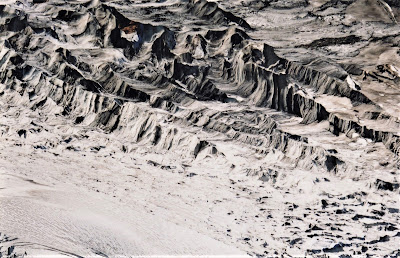Freshwater accounts for only a tiny percentage of water on the planet. It's declining. An assessment, by scientists at the Universities of Edinburgh and Zurich, records that, annually, the world's glaciers collectively lose an average of 273bn tonnes of ice. This is equivalent to 30 years of water consumption by the global human population. Thus far, this century, glaciers have lost an average of 5% of their total volume, These losses are, however, highly variable. Antarctic glacier declines are around 2%, whereas Europe's have lost 39%. The rate of loss is accelerating, as 36% more melt occurred in 2012-2023 than in the previous decade. After thermal expansion of water, glacial melt is the biggest contributor to sea level rise. The scientists assess, that in the present century, melting glaciers have contributed almost 2cm to the rise (https://www.theguardian.com/environment/2025/feb/19/melting-glaciers-cause-almost-2cm-of-sea-level-rise-this-century-study-reveals). This decline of the glaciers threatens humans. Rising sea levels will greatly increase the chances of coastal flooding. Major cities tend to be located in the milder conditions of the coast. Currently, circa 2 billion people also depend on glacial meltwater for their supplies. Losses of glacial water will render many hydroelectrical schemes inoperable, perhaps encouraging more use of fossil fuels. The reduced albedo (reflectiveness), as the ice melts, will also intensify the 'greenhouse effect', accelerating glacial melting. It's not cool!


%20mating%20NWCW.jpg)


No comments:
Post a Comment